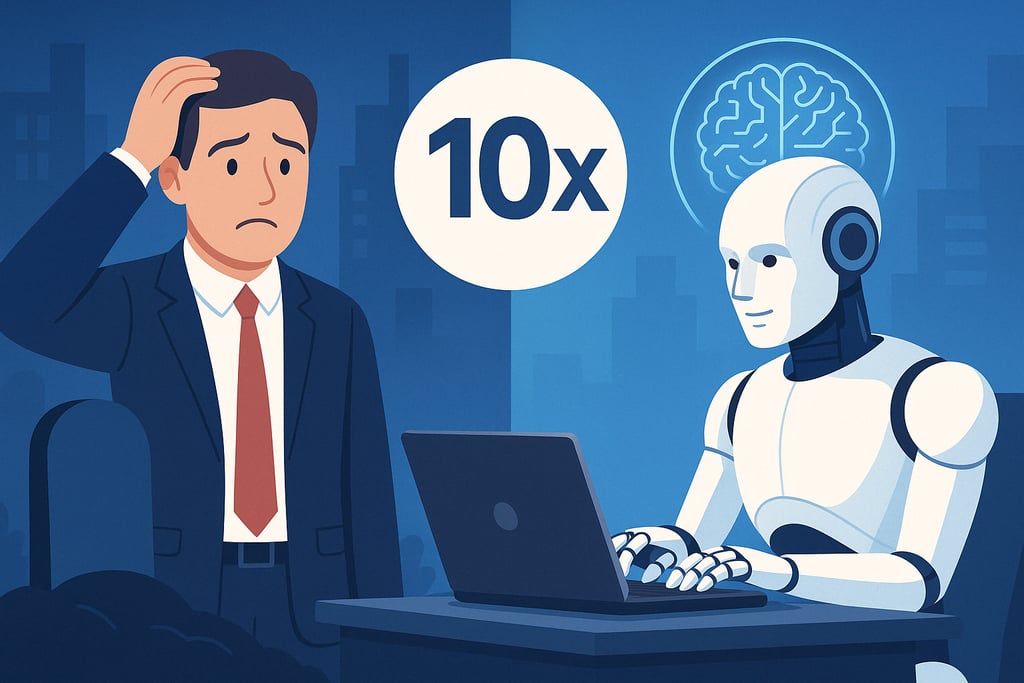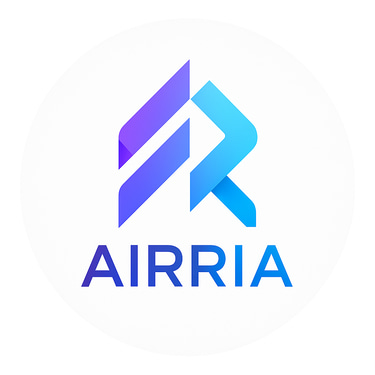Will AI Kill Your Job or Just Make You 10x Faster?
Exploring the Real Impact of AI on Employment and Productivity
TECHNOLOGY
4/17/20252 min read


The AI Revolution: Threat or Opportunity?
As artificial intelligence (AI) continues to evolve, its impact on the workforce has become a topic of intense debate. Will AI render human jobs obsolete, or will it serve as a powerful tool to enhance productivity? The reality is nuanced, with AI both displacing certain roles and creating new opportunities.
The Displacement Dilemma
AI's ability to automate tasks has led to concerns about job displacement across various sectors. According to a 2024 report by Goldman Sachs, generative AI could potentially automate the equivalent of 300 million full-time jobs globally.
Specific professions are already experiencing significant changes:
Programming: AI-powered code generation tools like ChatGPT and Copilot are automating coding tasks, leading to a notable shift in the software development landscape.
Legal Services: AI is increasingly capable of handling routine legal tasks, such as document review and legal research, challenging traditional roles within the legal profession.
Recruitment: AI-driven tools are streamlining candidate sourcing and screening processes, transforming the recruitment industry.
These developments underscore the importance of adaptability and continuous learning in the face of technological advancement.
Productivity Gains: A Silver Lining
While AI poses challenges, it also offers significant productivity benefits. A 2024 study by McKinsey estimates that AI could add up to $4.4 trillion annually to the global economy by enhancing productivity across various sectors.
In the workplace, AI is already making a tangible impact:
Increased Efficiency: 80% of employees using AI tools report heightened productivity, particularly in tasks like writing assistance, workflow automation, and data analysis.
Enhanced Work-Life Balance: AI is enabling more flexible work arrangements, with 45% of workers believing that AI could facilitate a four-day workweek by maintaining productivity levels.
These insights highlight AI's potential to augment human capabilities and improve quality of life.
The Human Element: Irreplaceable Skills
Despite AI's advancements, certain human attributes remain beyond its reach. Skills such as critical thinking, emotional intelligence, and complex problem-solving continue to be essential in the modern workplace.
OpenAI Chair Bret Taylor draws parallels between AI and tools like Microsoft Excel, emphasizing that while such technologies automate tasks, they do not diminish the value of human judgment and decision-making.
Preparing for the Future
To thrive in an AI-integrated world, individuals and organizations must proactively adapt:
Continuous Learning: Embrace lifelong learning to stay abreast of technological advancements and acquire new skills.
Reskilling and Upskilling: Focus on developing skills that complement AI, such as strategic thinking and interpersonal communication.
Policy and Regulation: Governments and institutions should implement policies that support workforce transitions and address potential inequalities arising from AI adoption.
Conclusion
AI's impact on employment is multifaceted, presenting both challenges and opportunities. While certain jobs may be displaced, AI also has the potential to enhance productivity and create new roles. By embracing adaptability, continuous learning, and strategic planning, individuals and organizations can navigate the AI revolution effectively, ensuring that technology serves as a catalyst for growth rather than a threat to livelihoods.
Note: This article is based on data and reports available up to April 2025.
Get in touch

Explore
Join us on our journey to monetize content.
© 2025. All rights reserved.
